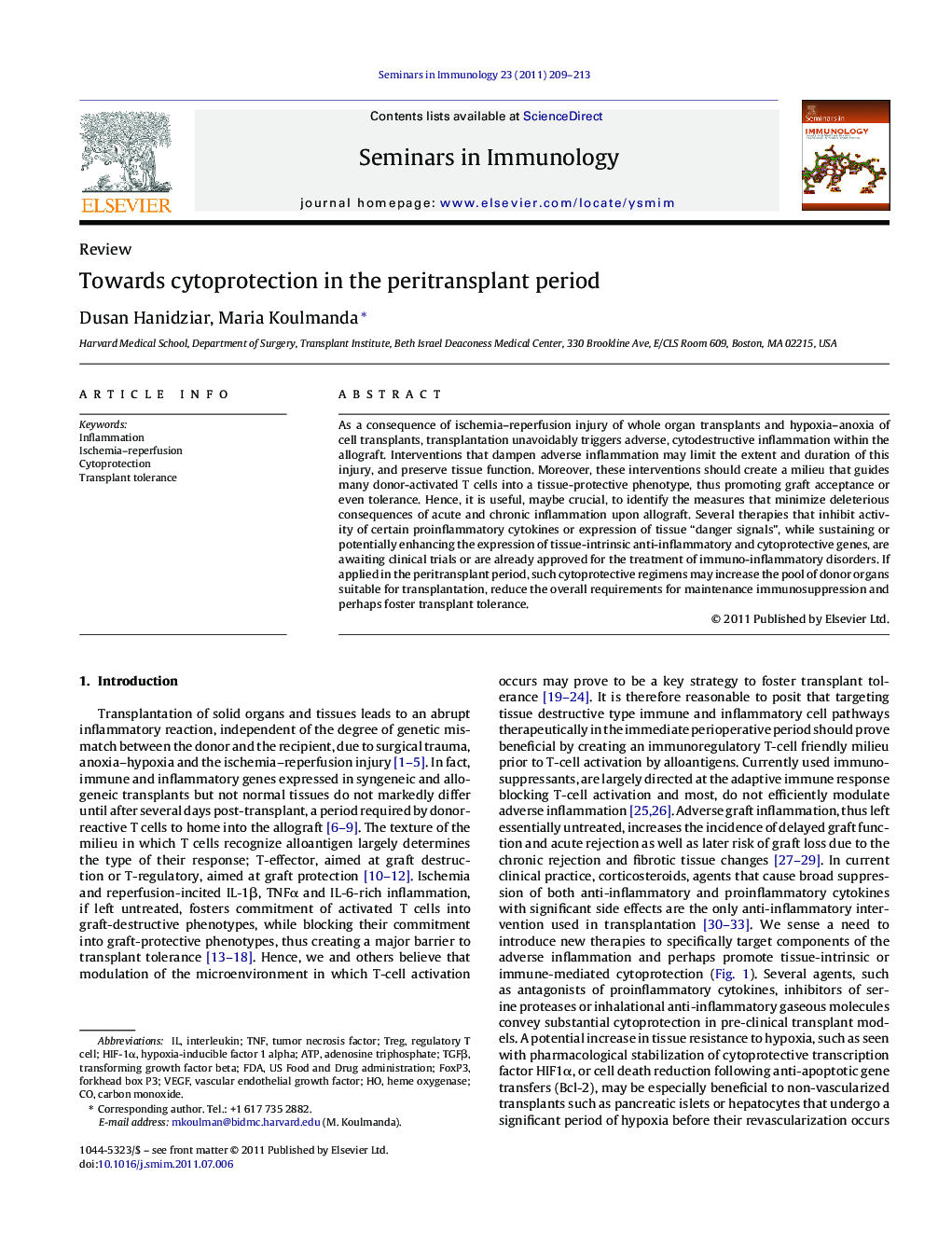| Article ID | Journal | Published Year | Pages | File Type |
|---|---|---|---|---|
| 3391623 | Seminars in Immunology | 2011 | 5 Pages |
As a consequence of ischemia–reperfusion injury of whole organ transplants and hypoxia–anoxia of cell transplants, transplantation unavoidably triggers adverse, cytodestructive inflammation within the allograft. Interventions that dampen adverse inflammation may limit the extent and duration of this injury, and preserve tissue function. Moreover, these interventions should create a milieu that guides many donor-activated T cells into a tissue-protective phenotype, thus promoting graft acceptance or even tolerance. Hence, it is useful, maybe crucial, to identify the measures that minimize deleterious consequences of acute and chronic inflammation upon allograft. Several therapies that inhibit activity of certain proinflammatory cytokines or expression of tissue “danger signals”, while sustaining or potentially enhancing the expression of tissue-intrinsic anti-inflammatory and cytoprotective genes, are awaiting clinical trials or are already approved for the treatment of immuno-inflammatory disorders. If applied in the peritransplant period, such cytoprotective regimens may increase the pool of donor organs suitable for transplantation, reduce the overall requirements for maintenance immunosuppression and perhaps foster transplant tolerance.
► Inflammation adversely influences short-term and long-term graft outcomes. ► Immunosuppressants used in transplantation do not effectively treat inflammation. ► Therapies blocking inflammation attenuate graft injury and foster transplant tolerance.
